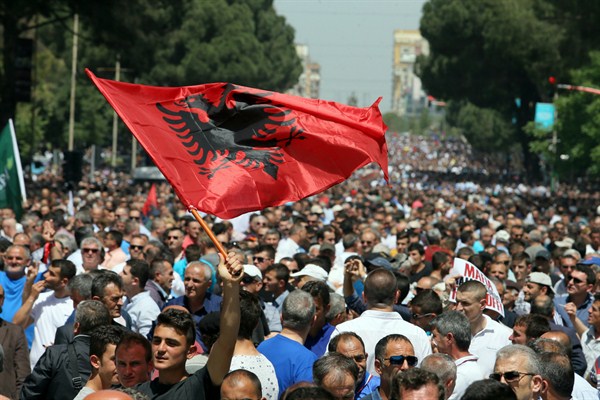Albania’s “on again, off again” election is back on after the opposition ended its threat of a boycott last month. But allegations of a spiraling drug-trafficking problem, and claims and counterclaims of criminal links to politics, are still an unedifying sight in a European Union candidate state. Prolonged political deadlock over recent months is a sign not only of Albania’s deep political divisions and dysfunctions, but also of the EU’s limited ability to use its leverage in the increasingly restive Western Balkans.
On May 22, Albania’s government confirmed a deal that put opposition figures into government positions, a compromise that cleared the way for an election on June 25, a week later than planned. The compromise came after pressure from both the EU and the United States for the opposition to call off its threatened boycott of the vote, and for the government to give some ground to allow a competitive poll to take place.
The deal saw the opposition Democratic Party, or PD, return to parliament after a four-month absence that stalled vital reforms and raised concerns about Albania’s democracy. The key intervention is not thought to have been repeated visits by EU officials, but the arrival of U.S. Deputy Assistant Secretary of State Hoyt Yee in mid-May. For some, this is a replay of diplomatic interventions in the Balkans over the past three decades: Repeated European attempts to broker deals fail, before the U.S. finally steps in and gets results.

